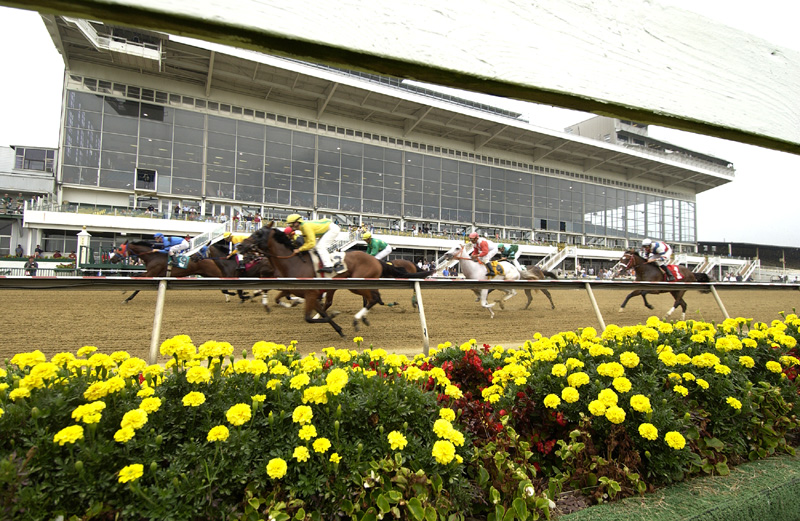
My customary sense of nostalgia was given a hard reality check recently when Magna Entertainment announced its bankruptcy. With the fall of Magna, one of racing's most historic ovals is now on life-support—Pimlico Race Course in Maryland. Pimlico plays host to the Preakness, the middle jewel in racing's Triple Crown, and has been the site of some unforgettable racing moments. Aside from Secretariat being wrongly denied a track record in the 1973 Preakness, perhaps it is most famous for the match race in which Seabiscuit defeated War Admiral.The loss of Pimlico and the Preakness stakes would render obsolete the most prestigious series in horseracing.
The State of Maryland realized that the loss of the Preakness would virtually erase the state's most important piece of sports history and took measures to prevent it. On April 14th, Governor Martin O'Malley signed legislation giving Maryland the right of eminent domain over the Preakness Stakes. Governor O'Malley's intentions may have been spot-on, but ultimately, they are just more paving stones in the road which leads to nowhere. Maryland's efforts are too little, too late.
No one can take over a business and lose money indefinitely. At best, the state's remedy is a temporary fix. Unless a way is found to rejuvenate interest in horseracing, Pimlico will soon become a piece of the history it has helped to build. Five years from now the question won't be, "Who killed Pimlico?" It will be, "Who cares?"
Some people will invariably blame Magna's owner, Frank Stronach, for Pimlico's demise, but this is not entirely fair. The state need look no further than its own hallowed halls to find a reason for dwindling crowds and a lack of interest.
Ask not for whom the takeout tolls. It tolls for thee.
Takeout, or the amount of money deducted from each wagering pool for expenses and taxes, has been driven to exorbitant levels for years by the Maryland legislature and other state governments, who do not understand the true concept of parimutuel wagering (parimutuel literally means "betting among ourselves." Bettors wager into a pool instead of against the house). As a result, the bulk of astute bettors who are responsible for large portions of the wagering pools have been jumping ship to more bettor-friendly environments. There are now multiple companies which offer account wagering, which allows a bet to be placed via telephone or the Internet. Many of these companies offer a rebate on the amount of money bet, which helps to offset the takeout. From the comfort of one's own living room, a horse-bettor can place bets at a variety of tracks with the promise of a greater return on their investment than if they were to actually go to the track.
This leads to another issue that Maryland and other states, such as Louisiana, have refused to address—problem neighborhoods surrounding the racetrack which may have discouraged attendance. Both Pimlico and Fair Grounds in New Orleans (the second and third-oldest tracks in the nation, respectively) have seen their surroundings deteriorate over the years. It has been rumored that Churchill Downs Incorporated, which owns and manages the Fair Grounds' property, has considered selling because the neighborhood is regarded by many would-be patrons as unsafe.
A situation like this would never have been allowed to happen near a casino. Zoning laws would have been challenged and police patrols increased to prevent such an occurrence. Other measures could have been taken as well. Perhaps the state should have invested some of the takeout tax dollars it collected into community programs and economic development for the nearby underprivileged neighborhoods.
When slot machines were proposed to help generate revenue for Pimlico and Laurel Park, Maryland once again dragged its feet and delayed the process until Magna simply ran out of time and money. In states where slot machines have been approved for racetracks, revenue has gone up, purses have increased, and attendance is slowly coming back. I am not a huge fan of gaming company involvement in horseracing, but right now it is a practical reality.
If Pimlico cannot be saved by a buyer who is willing to bite the bullet until the slots can turn things around, the Preakness will soon vanish. How long can a state operate a racetrack in order to run one race a year? Governor O'Malley has taken a preemptive strike to prevent the Preakness from disappearing in the night like the Colts did, but in doing so, the final nail may have been driven into the coffin of Maryland racing.

